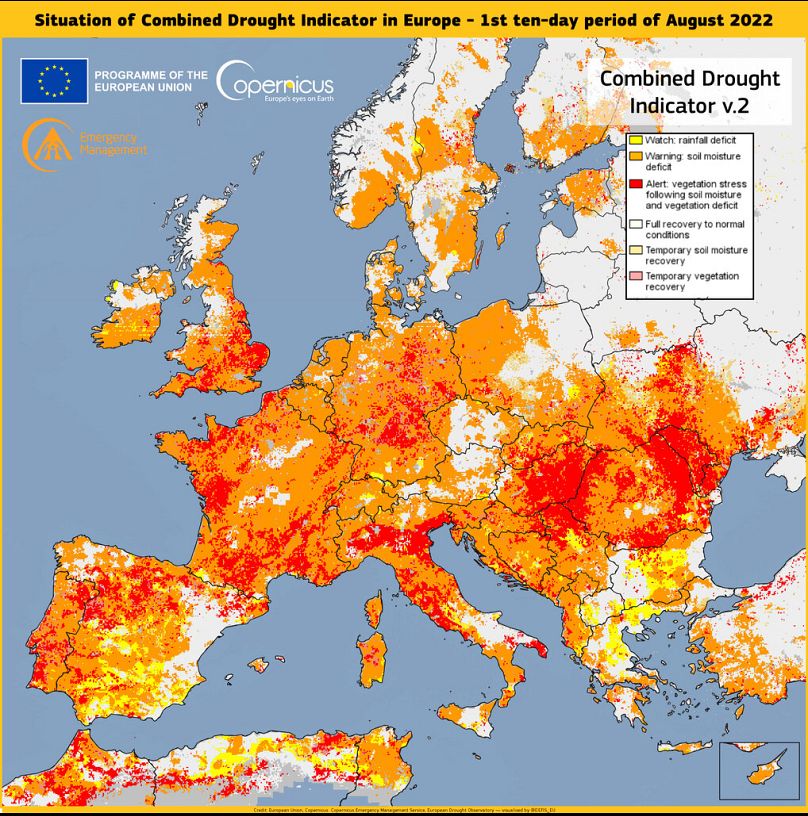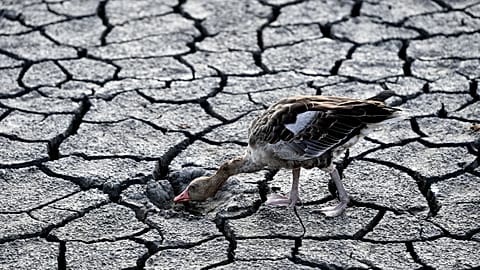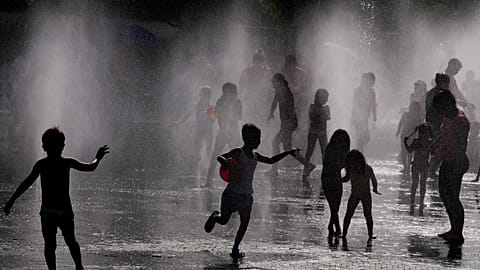Europe's leading scientists on "alarming" climate change and what it means for our daily lives.
A new Europe-wide report on climate change confirms the region experienced extreme weather in every season in 2022.
 ADVERTISEMENT
ADVERTISEMENT
 ADVERTISEMENT
ADVERTISEMENT
Hetwaves causing wildfires sent emissions soaring to levels not seen for fifteen years according to Copernicus, the EU’s flagship Earth observation programme which looks at data from the atmosphere in the region as well as seas and oceans and on land.
Winter storms and floods were followed by scorching temperatures above 40 degrees Celsius and low rainfall and sporadic heatwaves through the year led to wildfires in France, Slovenia and Greece.
Riverbeds and lagoons lay exposed and parched.
Samantha Burgess, Deputy Director, Copernicus Climate Change Service, is a co-author of the report.
“The Mediterranean countries were particularly hard hit by both extreme heat and extreme drought. And you can see that if you look at the precipitation records and the soil moisture records, that the majority of the Mediterranean countries were much drier than average and in terms of the affected area, over 63% of rivers were below average discharge for that area as well,” says Burgess.
According to Burgess, although weather extremes last year didn’t break every record, the exceptional weather is part of an ongoing trend.
“Many people remember, you know, the extreme summer that we had in 2003, for example, where there were huge numbers of fatalities across Western Europe from those heat waves in August. What we see is the summer that we had last year was much, much warmer,” she says.
2015 Paris Agreement
Burgess says the level of greenhouse gases produced in the European region last year makes it unlikely it will reach the 2015 Paris Agreement when countries globally agreed to limit global warming to 1.5 degrees Celsius.
She says: “The level of greenhouse gases in the atmosphere for 2022 was the highest that there's ever been. So, we have ice core records and other paleoclimate records that go back for Antarctic and for hundreds of thousands of years and for methane back to I think two million years, so we really know empirically that greenhouse gas concentrations in the atmosphere are the highest they’ve been in an incredibly long time.”
The report also confirms the European wildfires also boosted carbon emissions unseen for decades.
“The total estimated carbon emissions from wildfires across EU countries for the summer last year were the highest since 2007 and France, Spain, Germany and Slovenia experienced their highest summer wildfire emissions for at least the past 20 years,” says Burgess.
The exceptional weather was not confined to one or two seasons, says Burgess. Spring, summer and even the months going into winter were unusual.
She says: “We had really early record-breaking temperatures in the spring. So, in May, in March as well. And then we had very late heatwaves as well. So, we saw extreme or record breaking temperatures in October and in December many people will remember around New Year's it was extraordinarily warm. So, this combination of heatwaves and much warmer than average conditions across the year leads to increased heat stress. And we know from our data that the heat stress that European citizens were under in 2022 was the highest that they'd ever been under.”
Burgess warns we should not expect a return to more temperate weather in the future.
Data from the past five years shows Europe’s climate was 2.2 degrees Celsius above pre-industrial levels.
Nowhere is this more clear than on Europe’s glaciers which Burgess says are shrinking dramatically.
According to the report the Alps saw a loss of ice equivalent to 5 kilometres cubed.
“We also know from our data that it's not a one off. When we look at the trends, the global temperatures are increasing, even though last year was only the second warmest year ever recorded for Europe, it was the fifth warmest recorded globally. But the last eight years have been the warmest eight years on record,” says Burgess.
She says the world is moving towards an El Nino weather system which could add to a warming of the atmosphere.


















